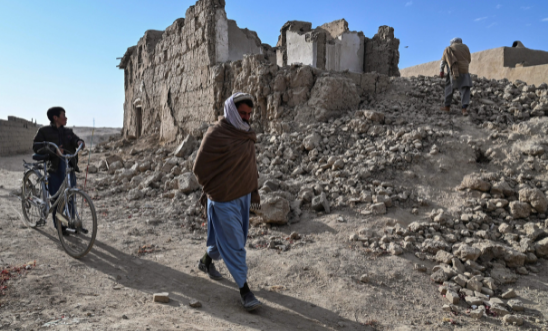The Taliban, United States military, and Afghan security forces were all responsible for attacks that resulted in extensive civilian suffering before the country’s government collapsed earlier this year, Amnesty International said in a new report today.
The new 48-page report – No Escape: War Crimes and Civilian Harm During The Fall Of Afghanistan To The Taliban – documents torture, extrajudicial executions and killings by the Taliban during the final stages of the conflict in Afghanistan, as well as civilian casualties during a series of ground and air operations by the Afghan National Defence and Security Forces (ANDSF) and US military forces.
In the research – which was conducted on-the-ground in Kabul from 1-15 August this year when the collapse was at its most chaotic – Amnesty’s Crisis Evidence Lab reviewed satellite imagery, videos, photographs, and medical and ballistics information.
The report documents eight cases during ground combat in which a total of 12 civilians were killed (five men, one woman, and six children), and 15 more injured. Through a combination of negligence and disregard for the law, the US-trained ANDSF frequently launched mortar attacks that hit homes and killed civilians in hiding.
The report documents four air strikes – three most likely carried out by US forces, and one by the Afghan Air Force – in recent years. The strikes killed a total of 28 civilians (15 men, five women, and eight children), and injured another six.
Agnès Callamard, Amnesty International’s Secretary General, said:
“The months before the government collapse in Kabul were marked by repeated war crimes and relentless bloodshed committed by the Taliban, as well as deaths caused by Afghan and US forces.
“Our new evidence shows that, far from the seamless transition of power that the Taliban claimed happened, the people of Afghanistan have once again paid with their lives.
“Homes, hospitals, schools and shops were turned into crime scenes as people were repeatedly killed and injured. The people of Afghanistan have suffered for too long, and victims must have access to justice and receive reparations.
“The International Criminal Court must reverse its misguided decision to deprioritise investigations into US and Afghan military operations, and instead follow the evidence on all possible war crimes, no matter where it leads.
“The Taliban authorities now have the same legal obligation to provide reparations as the former government and must address all issues of civilian harm seriously.
“Victims and their families must receive reparations, and all those suspected of responsibility must be held to account in fair trials before ordinary civilian courts and without recourse to the death penalty.”
As they seized control of districts across Afghanistan in July and August, members of the Taliban tortured and killed ethnic and religious minorities, former ANDSF soldiers, and perceived government sympathisers in reprisal attacks.
On 6 September, Taliban forces attacked Bazarak town in Panjshir province. After a brief battle, approximately 20 men were captured by Taliban fighters and detained for two days, at times jailed in a pigeon coop. They were tortured, denied food, water and medical assistance, and repeatedly threatened with execution.
One of the men captured by the Taliban said: “[The] Talib had taken a knife… he was saying he wanted to behead the wounded… because they are infidels and Jews.”
Another man added: “They kept us underground. When we were asking for medical treatment of the wounded, the Taliban were saying, ‘Let them die’… There was no food and water, and no support to the wounded. They had brutal relations with us. When we were asking for water, they were saying, ‘Die of thirst’.” Torture and cruel and inhuman treatment of captives constitute war crimes.
Later the same day, the Taliban also attacked the nearby village of Urmaz, where they conducted door-to-door searches to identify people suspected of working for the former government. The fighters extrajudicially executed at least six civilian men within 24 hours, mainly by gunshots to the head, chest or heart. Such killings constitute war crimes. Eyewitnesses said that while some of the men had previously served in the ANSDF, none were in government security forces or taking part in hostilities in any way at the time of execution.



